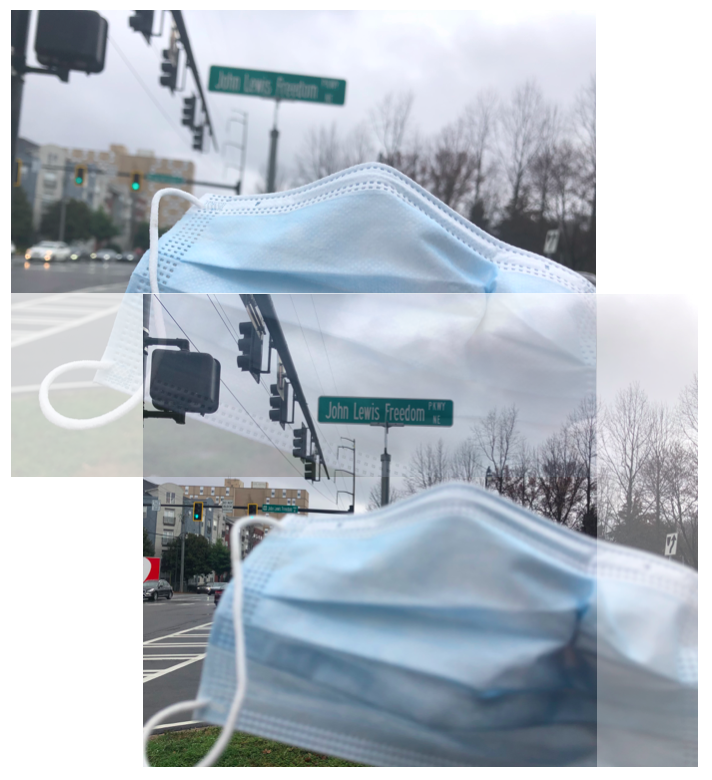at freedom parkway i turned,
where the street sheds its name for another,
like a secret identity,
a mask.
i climbed over the curb, wheels up, shades down,
gripping bike handles, waiting for my heartbeat to die.
The numbers ticked red above us—yes, us,
because he stepped onto the crosswalk too,
the man, the stranger.
at freedom parkway he turned to me,
peeling, wrinkled like a throwaway plum,
and bent, just slightly,
just enough to tug on the thin wire
humming between us.
he turned,
and then we both saw it,
but maybe he couldn’t—the
blue-white paper hung from his ears around his chin,
around his neck, fallen from his face, the trigger of that tripwire,
the unpinning of a grenade.
“is that the hospital?”
if someone saw where he pointed,
it wasn’t me.
the cables inside of me were split,
smoking, sounding the crisis,
every breath between us now a weapon.
the light ticked its last red circle,
engines revving, exhaust gathering,
wheels inside of me aching to go.
and the only thing i knew i couldn’t have was air
but that was the only thing between us.
at freedom parkway he begged of me,
offered himself, hunched,
let me see the truth broiling inside of him.
i did not see; i do not see, i see only
blue and flashing lights—tick,
the hum of a ventilator, tick, the flickering of an illness that is a prison,
a million tiny prisons from each other.
at freedom parkway i met another human’s eyes
and stepped down on my bike pedal,
crossed over the curb.
i held my breath
and wheeled away.
Author’s note:
Last summer, when the pandemic was settling in as a fact of life, I spent a lot of time thinking about how it isolates us. Of course, it isolates us from our close friends, coworkers, and teachers—but also from strangers. The tiny amount of trust or connection that I might ever feel for a stranger dropped to zero, because there was always the possibility they were sick. The physical signs of this shift in people’s mindsets were everywhere: people stepping off the sidewalk to walk six feet around others, heads ducking instead of hands waving on the street.
I had never thought about those little moments of connection before, or how they might fit into Atlanta’s identity, and I watched as the pandemic drove many of them away. But I think that during this global crisis those tiny moments are even more important than before. A smile of support for someone who has lost their job in the past year could encourage them to keep going. If someone on the sidewalk asks you for the time, telling them could save them from missing an important doctor’s appointment. A brief head nod from the other side of the street could affirm to a new neighbor that they feel at home in their neighborhood. All of these things we can do safely, from a distance.
Reflecting on this moment at Freedom Parkway, I wouldn’t change what I did. But in the future, my goal is to safely support those around me—of course my close friends and coworkers and teachers, but also neighbors and other strangers who cross through my daily life. I hope this poem will inspire others to look for safe ways to do the same.




